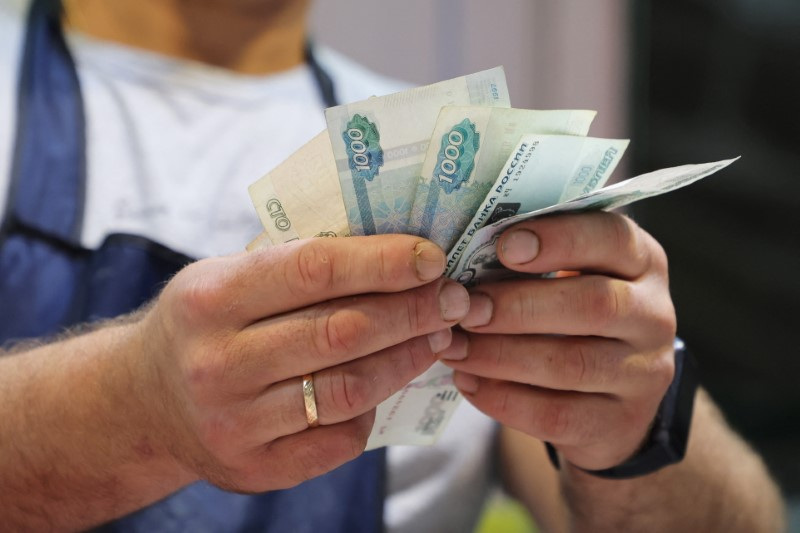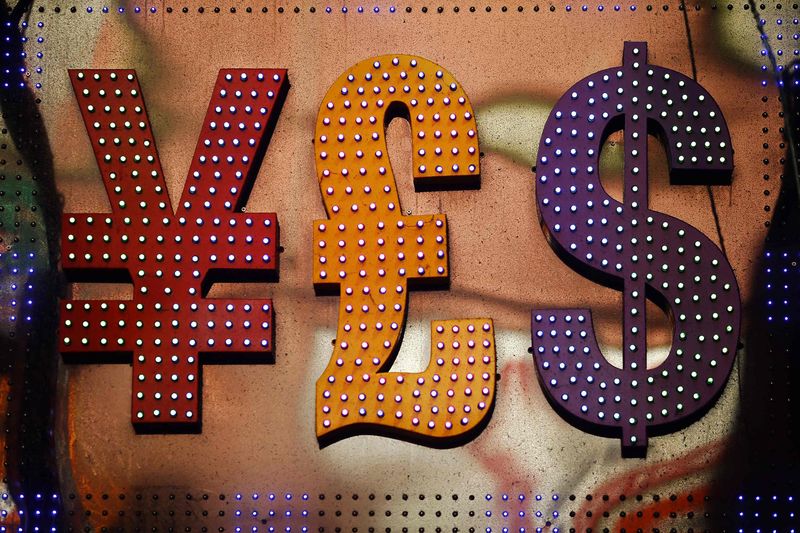By Gleb Bryanski
MOSCOW (Reuters) – In Russia there appears to be a new rule: do not mention the war in relation to the ruble.
Russian media and analysts at state-controlled banks have largely remained silent on a possible link between the ruble’s 9% fall against the US dollar and Ukraine’s surprise attack on the Kursk region.
The ruble’s decline began on August 6, the first day of the attack – the largest by a foreign power on Russian sovereign territory since World War II.
Currency traders who spoke to Reuters on condition of anonymity because of the sensitivity of the situation said foreign banks are the main sellers of the Russian currency.
The ruble hit a 10-month low against the dollar and the lowest level against the yuan since June 24 during the August 13 session. State banks attributed the decline mainly to economic factors.
Analysts at state-owned Sberbank, by far Russia’s largest bank, blamed US sanctions on the Moscow stock exchange, imposed on June 12, for reducing currency sales by exporters.
“Exporters may have reduced the volumes of foreign exchange sales in recent days. This is due to the fact that the requirements for mandatory foreign exchange sales have become more relaxed and the tax and dividend periods have ended,” Sberbank said in a note.
FINANCIAL SHIELD
The Russian central bank is silent about the fall of the ruble. The Russian government did not respond to a request for comment.
Leading Russian business media reported on the fall of the ruble, but did not link it to the attack on Kursk.
Analysts quoted by business news portal RBC attributed the decline to shrinking exports and reduced requirements for foreign exchange sales by exporters.
The news was also missing from major news and talk shows on Russian state television, as well as from state media websites.
The failure to link the fall of the ruble to the events unfolding just 330 miles southwest of Moscow illustrates the pressure within Russia to prevent bad economic news from reaching the broader public.
Russia has tried to portray its $2.0 trillion economy as an increasingly invincible bastion of self-sufficiency, able to withstand the enormous pressure of Western sanctions, the toughest sanctions ever imposed on a major economy.
“Our finances are strong,” Finance Minister Anton Siluanov said in a speech on Wednesday.
“It is important for us to build this financial shield so that any financial pressure that anyone wants to put on us is averted… This is exactly what is happening now,” Siluanov said.
One trader, speaking on condition of anonymity, suggested that the intense selling of rubles in recent days could also be linked to an upcoming freeze on foreign money transfers by Austria’s Raiffeisen Bank.

As the ruble started to recover on Wednesday, some analysts tried to debunk any link between the attack and the ruble’s fall, while others predicted it would stabilize soon.
By linking the currency’s decline to the Kursk raid, economist Mikhail Belyayev represented an approach that “in my opinion… has no connection with reality.”


